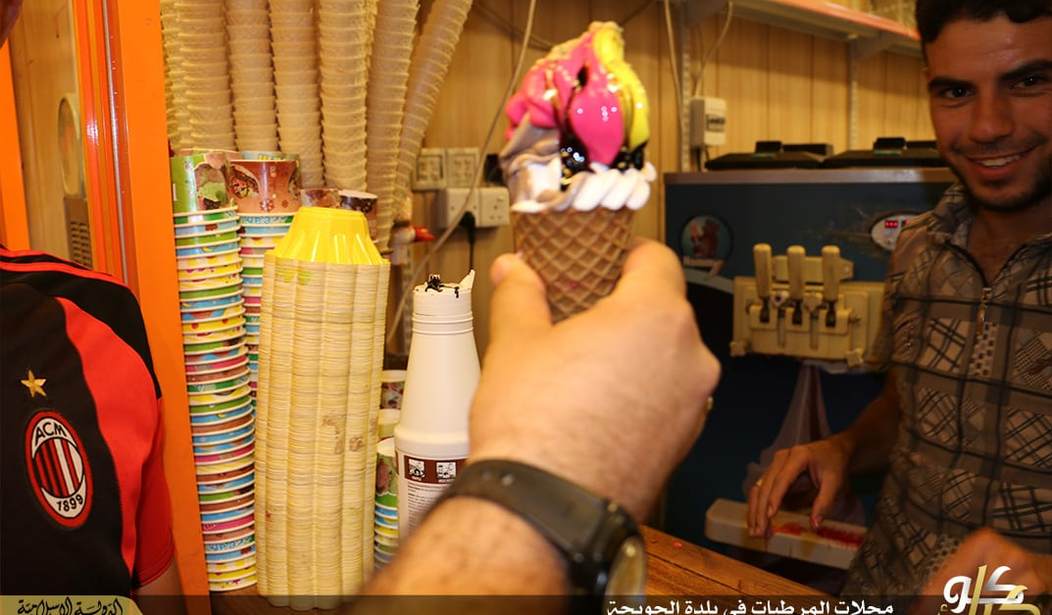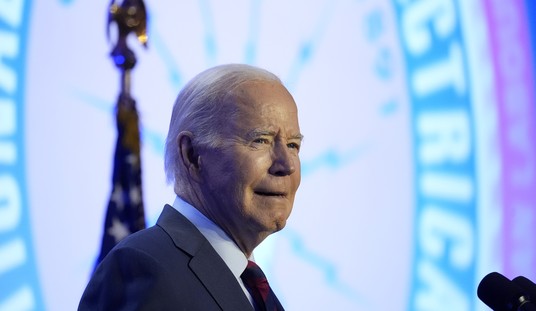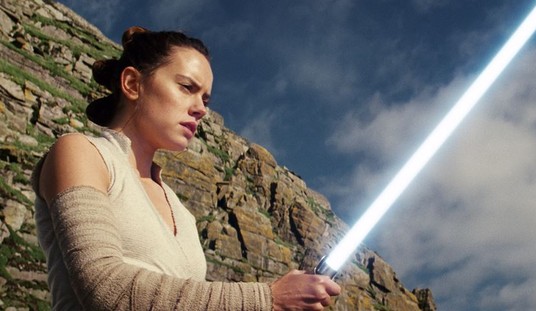A British jihadi who slipped off to Syria under UK authorities’ noses last fall has penned a pocket manual called “A Brief Guide to the Islamic State [2015]” — assuring would-be jihadis they’ll have all the comforts of home and featuring artwork of an ISIS invasion of Israel on the cover.
Siddhartha Dhar, who’s close to radical cleric Anjem Choudary and marched in his pro-Sharia events, was arrested in Britain in September on suspicion of encouraging terrorism. He jumped bail and fled to the Islamic State with his pregnant wife, who later gave birth to a boy.
He now goes by the name Abu Rumaysah al-Britani, and a couple of months ago penned an essay defending the right of fellow Briton Mohammed “Jihadi John” Emwazi to behead people. “Take the gloves off, leave the political correctness aside and be totally honest with ourselves. Yes, violence can be justified – bombs, bullets, knives, air strikes etc. are needed for the right enemy and we should not be made to feel ashamed about it,” he wrote then, adding the “identity of Jihadi John is largely irrelevant; he is after all just another soldier following orders.”
Rumaysah and Choudary were arrested Sept. 25 along with seven others. He was released, didn’t comply with the order to turn over his passport and left for Syria. His past media appearances to promote radical Islam have included BBC and VICE News, and he told Channel 4 weeks before his UK escape that he’d be happy to renounce his British citizenship to live in the Islamic State.
“I hope that one day Britain gets to live under the Shariah as well,” he also told the network.
Now, he’s written a 47-page booklet, dated Saturday by the author and being disseminated by ISIS supporters today via PDF, to aid other Westerners thinking about joining ISIS.
“In a time where the whole world has literally gathered against the Islamic State, I felt it was necessary to provide an alternative narrative to life under the Caliphate, which was free from many of the distortions pushed out by mainstream media,” Rumaysah writes, stressing that he wrote all of it while living “under the just shade of Islamic law in the Caliphate.”
He added that he hopes the book “becomes a valuable primary resource for future historians proving the superiority of Islam over all other ways of life,” and invites non-Muslims to “save themselves from hellfire.”
Rumaysah waxes about the videos of ISIS-laden Toyotas bashing through the desert and the “iconic scenes” of ISIS seizing the territory that would be declared its caliphate. “From the clever camera angles to the slow motion assassinations everything about the special effects scenes breathed Hollywood, and yet it was not, what we had instead was a powerful masterpiece that was Islamic to the core.”
He calls the founding of the Islamic State on June 29, 2014, a “date right up there with 11th September 2001.”
“In fact, in many ways it surpasses it purely for what it symbolizes,” he added in a dig at al-Qaeda, noting Abu Bakr al-Baghdadi “had finally achieved what no other organisation was able to.” He does, though, praise the “charisma and magnetism” of Osama bin Laden along with the “raw fury” of Abu Musab al-Zarqawi, leader of the predecessor of ISIS.
As the Islamic State nears its one-year anniversary, Rumaysah writes, “word spreads that the dream has indeed become reality” and “more and more Muslims will sooner or later take that leap of faith and migrate.” He said he wrote the book to “set fire to procrastination” of those who need “that extra push.”
With this, he launches into a whole chapter on food, telling would-be Islamic State residents they won’t be “living on stale bread and septic water.”
He describes “succulent” shawarma with mayo, “scrumptious” shish kebab, vegetarian options such as falafel on “wholesome flatbread,” and ‘ijaa — “a tempting choice for the bargain hunter” that subs fried eggs for falafel in a sandwich. The pickles “beat anything from your local Tescos or Walmart.” To drink, there are “very popular” fruity cocktails — “you can even spoil yourself by adding milk, sugar and crushed ice” — and “delightful, creamy and fresh” milk. “If you were worried about leaving behind your local Costa Coffee then you will be happy to know that the Caliphate serves some of the best lattes and cappuccinos around.”
For the jihadi sweet tooth, Rumaysah notes, ISIS ice cream is “fluffy, velvety and sweet” and “Snickers, Kit Kat, Bounty, Twix, Kinder Surprise, Cadburys — yes, yes we have it all.”
However, if nothing he’s described “tickles your taste buds,” he assures readers that the continental cuisine there should expand as more Muslims immigrate from places around the world. “I cannot help but think that in the near future we will be eating curries and chow meins on the streets of Raqqah and Mosul.”
The weather in the caliphate, admits Rumaysah, “gets really hot,” but he boasts steady daylight hours near the equator as a benefit.
“As a citizen of the Islamic State you are not just a resident of Raqqah or Fallujah you are part of a transnational empire that refuses to confine your identify with man-made borders,” he writes, stressing that they rely on an extensive transportation network within the caliphate because “the large swathes of territory captured by the Islamic State, as Western commentators coin it, will remain and can only get bigger, and I am certain those reading this message ten or twenty years from now will testify to this. As it stands, the land grab is pretty big, and one of the first priorities of the Islamic State will have to be those long windy pieces of tarmac called roads.”
“The Caliphate is dead serious about state building, and the transport network showcases this brilliantly.”
What’s the most popular car in the Islamic State? The jihadis who aren’t piled into Toyota trucks prefer South Korean models — Kia and Hyundai. Honda motorbikes are also popular, Rumaysah notes.
“The natural progression for the transport network in the Islamic State has to be trains then ships and aeroplanes, but everything is on the table: zeppelins, hovercrafts, trams, microlites, cable cars or perhaps a new creation invented by some witty entrepreneur,” he adds.
Technology in the Islamic State including that which has created their “stylish and cool” media brand, he claims, is as “turbocharged” as their “drive for conquest.”
“The recent deployment of a civilian truck that transforms into a rocket launcher in the Battle of Baiji proves how effective war is in stimulating innovation,” Rumaysah continues. “The natural progression for technology on the frontlines has to be, in my opinion, anti-aircraft artillery, and if the Caliphate is successful in producing something viable then it should be a real game changer.”
He also asserts that the caliphate is poised for “leaps and bounds” in renewable energy technology. Still, he said, keep eyes “firmly on the battlefields for the real movers and shakers.”
“If you though London or New York was cosmopolitan then wait until you step foot in the Islamic States, because it screams diversity,” begins a chapter about caliphate demographics and professionals lured by ISIS. “…I cannot see a Baltimore riot springing up here anytime soon and that is a dead cert, not because those in charge will deal with matters with an iron fist, but because there is no blur between right and wrong. What I mean by this is that citizens are not hypocritically led to believe that all cultures can coexist, and then have this belief torn apart by the bigoted reality on the ground.”
He also assures jihadists they will be popular among the people in occupied areas, who have been “understandably in euphoria” about ISIS “rolling in with the justice of the shariah.” As far as schools, “there are no cowboy academies here” and trainees need to “reach certain benchmarks.”
“This disclosure will, of course, be very comforting for Muslim parents who too want to take that plunge with their children and migrate to the Islamic State, and I hope it does act as a reassurance, because there is no better place to bring up your loved ones,” Rumaysah writes. “…There are no classes promoting homosexuality, evolution, music, drama, interfaith and the rest of the rubbish taught in non-Muslim schools.”
The final chapter declares “capitalism is dead.”
ISIS, says the British jihadi, is “incredibly dangerous” because of an “invaluable supply of human resources that has the critical mass to take its enemies to the point of exhaustion.”
“If history tells us anything it shows us that the pride of nations very often clouds their perception of the reality on the ground, and no one needs to understand this more than America,” Rumaysah writes. “…America simply does not have the stomach for the fight ahead, it is too long and difficult. Diehard followers of Western values will, no doubt, bite their fingertips in rage at this conclusion, but is it really that hard to believe? … No one saw the Islamic State coming and they are critically ill prepared for the tsunami lurking menacingly on the horizon.”
“As the Islamic State army edges closer and closer to Damascus and Baghdad, as a lion stalks its prey, watch closely at how defeat eats away at the loser, because these two cities are just appetisers. When we descend on the streets of London, Paris and Washington the taste will be far bitterer, because not only will we spill your blood, but we will also demolish your statues, erase your history and, most painfully, convert your children who will then go on to champion our name and curse their forefathers.”








Join the conversation as a VIP Member